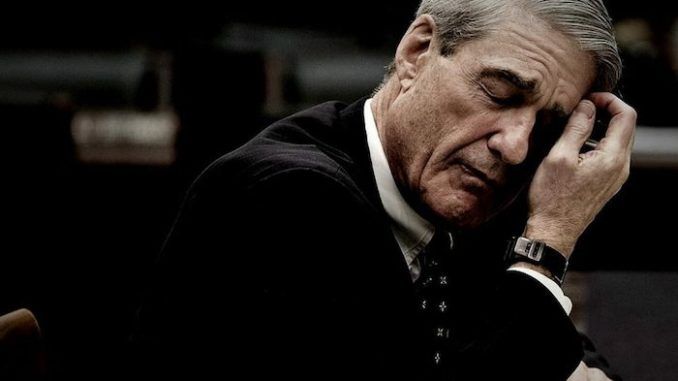
At least two of the spy warrants against Carter Page were not lawfully authorized, the FISC [Foreign Intelligence Surveillance Court] admitted in a secret order.
Presiding FISA judge James Boasberg wrote in a January 7 order which was not declassified and released until Thursday, that the last two FISA warrants on Carter Page dated April 7, 2017 and June 29, 2017 were invalid.
Thegatewaypundit.com reports: The June 2017 FISA warrant was signed by former DAG Rod Rosenstein and Former Deputy Director of the FBI Andrew McCabe.

BYPASS THE CENSORS
Sign up to get unfiltered news delivered straight to your inbox.
You can unsubscribe any time. By subscribing you agree to our Terms of Use
Rosenstein signed the June 2017 FISA warrant a month after he wrote the memo authorizing the appointment of special counsel Robert Mueller — and 20 pages of this FISA application are STILL REDACTED.
Did Robert Mueller actually use information gathered in real time by the illegal wiretaps on Carter Page?
If so, this could pose a huge problem for Mueller’s cases against Trump officials because the wiretaps are now officially invalid.
“The final three-month authorization to spy on Page was signed nearly six weeks after Mueller was appointed, meaning that Mueller may have had real-time access to and utilized nearly five months worth of surveillance of Page during the course of Mueller’s investigation. If his office used any of the information in subsequent cases, the declaration that the final two spy warrants against Page were invalid could potentially nullify previous or future convictions sought by Mueller’s office,” Sean Davis of The Federalist wrote.
The Federalist reported:
Judge James Boasberg, the current federal judge presiding over the FISA court, wrote in his order that at least two of the four FISA applications against Carter Page were unlawfully authorized. Additionally, according his order, the Department of Justice similarly concluded following the release of a sprawling investigate report on the matter by the agency’s inspector general that the government did not have probable cause that Page was acting as an agent of a foreign power. The FISA law states that American citizens cannot be secretly spied on by the U.S. government absent probable cause, based on valid evidence, that an American is unlawfully acting as a foreign agent.
In his January 7 order, Boasberg directed DOJ to retain and sequester all information and evidence relevant to both the Carter Page applications, the inspector general investigation of FISA abuse, and any additional DOJ investigations related to or spawned by the inspector general’s report. Boasberg told DOJ to provide all of the required information to the FISA court no later than January 28.
“DOJ assesses that with respect to the applications in Docket Numbers 17-375 and 17-679, ‘if not earlier, there was insufficient predication to establish probable cause to believe that [Carter] Page was acting as an agent of a foreign power,’” Boasberg wrote, referring to the final two of the four FISA applications to spy on Page. “The Court understands the government to have concluded, in view of the material misstatements and omissions, that the Court’s authorizations in Docket Numbers 17-375 and 17-679 were not valid.”
According to Boasberg, the DOJ is still assessing whether the first two FISA warrants on Carter Page were also obtained illegally.
The first FISA warrant on Carter Page was obtained in October of 2016 and second warrant was obtained in January of 2017.
Boasberg also said in his order that it is a federal crime for any federal official to “intentionally…disclose[] or use[] information obtained under color of law by electronic surveillance, knowing or having any reason to know that the information was obtained through electronic surveillance not authorized” by law.

